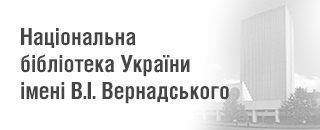STATE POLICY OF SOCIAL AND HUMANITARIAN SECURITY IN THE TRANSFORMATION OF THE TOURISM INDUSTRY IN THE CONTEXT OF EPIDEMIOLOGICAL IMPACTS
DOI:
https://doi.org/10.31470/2786-6246-2023-5-77-83Keywords:
state policy, tourism, socio-humanitarian context, epidemiological impact, security, industry, transformation, servicesAbstract
In the conditions of an unfavorable epidemiological situation, the development of the tourism industry was under serious threat. According to modern features, foreign tours this year took place with maximum discounts to attract tourists who were afraid to travel. The first outbreaks of the disease were the result of the return of citizens from foreign trips, but also a financial blow - current tours around the world had to be interrupted, and those planned for a later date - canceled or postponed. In such conditions, tour operators, travel agents, carriers and other participants in the market of tourist services suffered serious losses. Popular options turned out to be active types of recreation - camping, fitness tours, as well as rafting and hiking, which can be organized not far from the house. While epidemics have brought global tourism to a standstill, millions of people in quarantine are looking to get cultural and tourist experiences right from home. During this period, culture proved its own high importance, and the demand for virtual access to museums, cultural heritage sites, theaters and performances reached unprecedented levels.
If tourism is entrusted with the task of contributing to the survival of the socio-cultural sector, i.e. its many segments, it must strengthen the cultural identity and brand of tourist travel. Despite all the difficulties of the tourism industry, there was an opportunity to create new partnerships and cooperate accordingly. They must once again develop and diversify their offerings, attract new audiences, acquire new skills and support the global transition to new conditions. Information flow between sectors plays a key role in understanding the consequences of epidemics and developing effective responses.
Concrete data on the socio-economic consequences for culture and tourism, as well as on the decisions made to save cultural tourism, will enable the development of mitigation plans to meet needs and replicate best practices. Social isolation has proven the importance of new technologies and mass media in our daily lives. When millions of people can be quarantined, it is an appropriate moment to create and promote socio-cultural experiences for a permanent audience. The challenge is to deliver these experiences in a way that supports direct benefits for the organizations and practitioners involved. During this digital transition, tourism can form alliances with tech companies and the private sector to improve access to their online tourism capacity building programs.
References
Deiaki pytannia elektronnoi systemy okhorony zdorovia: Postanova Kabinetu Ministriv Ukrainy vid 25.04.2018 r. № 411[Some issues of the electronic health care system: Resolution of the Cabinet of Ministers of Ukraine dated April 25, 2018 № 411]. www.kmu.gov.ua. Retrieved from https://www.kmu.gov.ua/ua/npas/deyaki-pitannya-elektronnoyi-sistemi-ohoronizdorovya [in Ukrainian].
Dombrovska, S.M. & Bilotil, O.M. & Pomaza-Ponomarenko A.L. (2016). Derzhavne rehuliuvannia turystychnoi haluzi Ukrainy: monohrafiia [State regulation of the tourist industry of Ukraine: monograph]. Kharkiv: NUTsZU [in Ukrainian].
Lekhan, V.M. & Slabkyi, H.O. & Shevchenko, M.V. (2015), Analiz rezultativ reformuvannia systemy okhorony zdorovia v pilotnykh rehionakh: pozytyvni naslidky, problemy ta mozhlyvi shliakhy yikh vyrishennia [Analysis of the results of reforming the health care system in the pilot regions: positive consequences, problems and possible solutions]. Ukraina. Zdorovia natsii – Ukraine. The health of the nation, 3, 67–86 [in Ukrainian].
Mahiiovych, R.I. & Pylypiak, O.V. & Shkribynets, O.O. (2008). Rozvytok turystychno-rekreatsiinoho kompleksu v Zakhidnomu rehioni [Development of the tourist and recreational complex in the Western region]. Naukovyi visnyk NLTUU – Scientific Bulletin of NLTUU, 18.7, 164-169 [in Ukrainian].
Maistro, S.V. & Dombrovska, S.M. (2017), Osoblyvosti derzhavnoho upravlinnia rekreatsiinym turyzmom Ukrainy [Peculiarities of state management of recreational tourism in Ukraine]. Kharkiv [in Ukrainian].
Rozmetova, O.H. (2008). Derzhavne rehuliuvannia investytsiinoho rozvytku kurortno-rekreatsiinoho kompleksu rehionu [State regulation of investment development of the resort and recreation complex of the region]. Extended abstract of candidate’s thesis. Kyiv [in Ukrainian].
Skakovska, S.S. (2010). Struktura pryrodno-rekreatsiinoho potentsialu rehionu yak obiekt upravlinskoi diialnosti [The structure of the natural and recreational potential of the region as an object of management activity]. www.nbuv.gov.ua. Retrieved from http://www.nbuv.gov.ua/portal/soc_gum/prvse/2010_2 /25.pdf [in Ukrainian].
Sudova-Khomiuk, N. (2002), Upravlinnia investytsiinymy protsesamy v turystychno-rekreatsiinomu kompleksi Ukrainy [Management of investment processes in the tourism and recreation complex of Ukraine]. Rehionalna ekonomika – Regional economy, 3, 260–265 [in Ukrainian].
Fedorova, V.H. (2011), Teoretyko-metodychni pidkhody do vyznachennia poniattia «klaster»: navch. posibnyk [Theoretical and methodological approaches to the definition of the concept of "cluster": teaching. manual]. Efektyvna ekonomika – Effective economy, 9. Retrieved from http://nbuv.gov.ua/UJRN/efek_2011_9_31 [in Ukrainian].
Shchepanskyi, E.V. (2015), Mekhanizm derzhavnoho antykryzovoho upravlinnia v turystychno-rekreatsiinii sferi Ukrainy [The mechanism of state anti-crisis management in the tourism and recreation sphere of Ukraine]. Universytetski naukovi zapysky – University scientific notes, 1, 284–292 [in Ukrainian].







